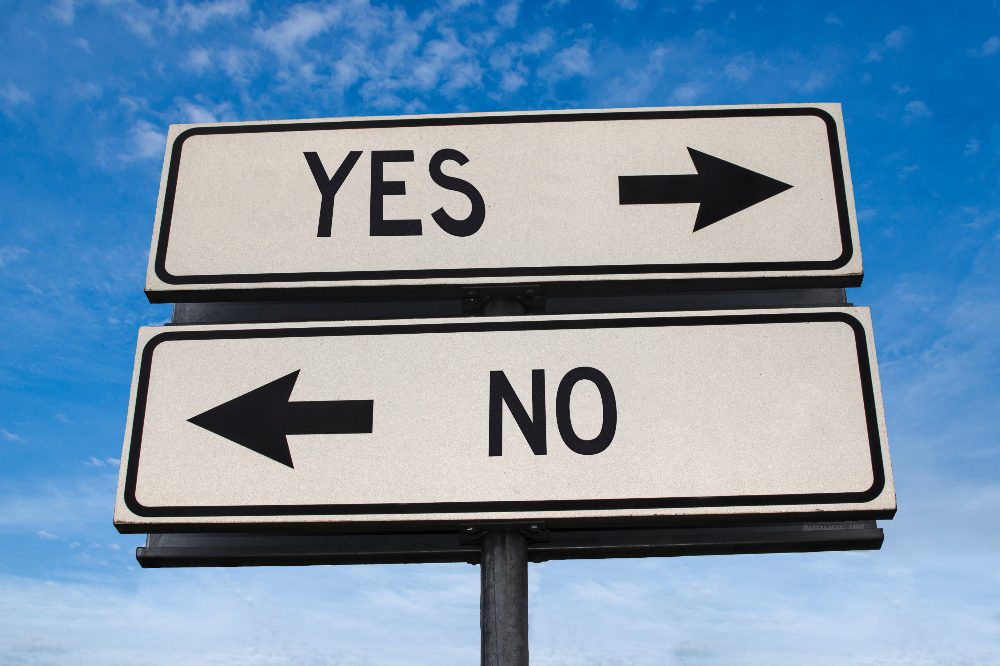There are two competing narratives of success that are often shared as wisdom: one that says success comes from saying yes to opportunities, and another that asserts that saying no to almost everything is the key to achievement.
The Say Yes camp advocates that saying yes opens doors, leads to meeting new people and helps to uncover opportunities and unexpected areas of interest that might otherwise be missed. The people in this camp also believe there’s an element of karma—a belief that saying yes to helping others will lead to others helping you in the future.
The Say No camp counters that success comes from focused, disciplined investment of your time where it creates the most value. This camp believes that saying yes to too many things creates distraction and dilutes our impact.
Which camp is right? As is often the case, both might be.
This point was crystallized for me in a podcast interview with author Atul Gawande that I heard recently. In Gawande’s opinion, he achieved success by saying yes to most things before he was 40 and no to almost everything after he was 40.
This intuitively makes sense.
Earlier in your career and life, saying yes and taking chances is crucial to development, especially when we are still learning what we like to do, who we like to do it with, and what talents we possess and can refine. At this early stage, we should be open-minded, experimental, willing to learn and comfortable with the possibility that we may waste our time in some endeavors. Wasting time also does not have as significant an opportunity cost when we are younger; trial and error is part of the learning process we all go through.
When I think about some of the fastest rising leaders at our company, many of them have been quick to raise their hands to help, or willing to take on something new and different, even if it scared them a little. The early career stage is probably not the time to be quiet-quitting or disengaged. To use a baseball analogy, that is the time to swing every time you come up to bat, even if you don’t get on base as much as you’d like.
However, at some point, our calculus must change. As we advance in our career, hone our expertise, build our networks and gain clarity around our values, strengths and most important priorities, saying no becomes increasingly important. Saying yes too often at this point pulls our time and energy away from what we do best professionally and distracts us from our most important priorities outside work, such as health and family.
Additionally, as you advance and find success in your career, you’ll have more demands on your time, and more people asking you for your time. Being disciplined about doing less is both more difficult and more important simultaneously.
Fortunately, gaining life and career experience helps us better recognize when to say yes or no. Early in my career, it was harder to discern which potential connections, jobs, meetings, projects, or other potential opportunities would be valuable or a waste of my time, for many of the reasons above.
But today, when someone reaches out to me with an ask or opportunity, I can usually guess with excellent accuracy if it’s something that is worth my time or energy. I have also developed templates to say no to some of the most common requests I receive, which I have learned is a best practice to limit the discomfort of turning someone down. Sometimes we say yes because it’s just easier, but all this does is cause problems in the future.
While learning to say yes opened up many doors earlier in my career, learning to say no has ensured that I am focused on making my highest contribution today, without being distracted.
What is something in your life that you should be saying yes or no to?
Quote of The Week
“Say no to everything, so you can say yes to the one thing.”
–Richie Norton









